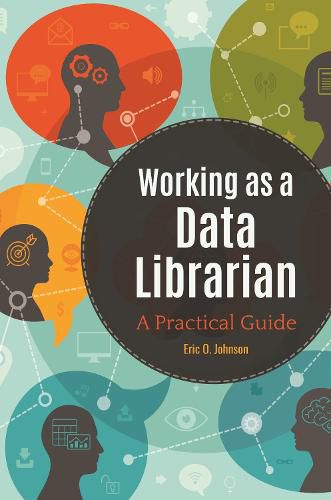Readings Newsletter
Become a Readings Member to make your shopping experience even easier.
Sign in or sign up for free!
You’re not far away from qualifying for FREE standard shipping within Australia
You’ve qualified for FREE standard shipping within Australia
The cart is loading…






Many librarians’ job responsibilities increasingly require them to understand and handle data. Learn how to be an effective data librarian-even if you never expected to need data skills.
The field of data librarianship is rapidly growing, and some librarians may feel that their training and experience does not cover data questions asked by patrons seeking advice. With this gentle guide for librarians moving-sometimes unexpectedly-into the world of data librarianship, all you need is a willingness to learn the skills required for the rapidly growing number of jobs requiring data librarianship.
Working as a Data Librarian focuses on transferable skills and understanding and does not assume extensive knowledge. It introduces tasks and concepts needed to be an effective data librarian, such as best practices for data reference interviewing, finding data sources, data visualization, data literacy, the data lifecycle, metadata design, database design, understanding data management, and preparing data management plans.
Additional sections focus on supporting creativity (Makerspaces and Fablabs, 3-D modeling), supporting analysis (GIS, data visualization, text mining, statistical methods), supporting research (digital scholarship, digital preservation, institutional data repositories, scholarly communication), and outreach (data librarian liaisonship, hackathons, developing outreach programs).
Acquaints readers with the fast-growing field of data librarianship
Teaches librarians the fundamental skills needed to be a data librarian
Offers best practices for data reference interviewing, finding data sources, data visualization, data literacy, the data lifecycle, metadata design, database design, understanding data management, and preparing data management plans
Helps librarians to support creativity and research and to run outreach programs
$9.00 standard shipping within Australia
FREE standard shipping within Australia for orders over $100.00
Express & International shipping calculated at checkout
Many librarians’ job responsibilities increasingly require them to understand and handle data. Learn how to be an effective data librarian-even if you never expected to need data skills.
The field of data librarianship is rapidly growing, and some librarians may feel that their training and experience does not cover data questions asked by patrons seeking advice. With this gentle guide for librarians moving-sometimes unexpectedly-into the world of data librarianship, all you need is a willingness to learn the skills required for the rapidly growing number of jobs requiring data librarianship.
Working as a Data Librarian focuses on transferable skills and understanding and does not assume extensive knowledge. It introduces tasks and concepts needed to be an effective data librarian, such as best practices for data reference interviewing, finding data sources, data visualization, data literacy, the data lifecycle, metadata design, database design, understanding data management, and preparing data management plans.
Additional sections focus on supporting creativity (Makerspaces and Fablabs, 3-D modeling), supporting analysis (GIS, data visualization, text mining, statistical methods), supporting research (digital scholarship, digital preservation, institutional data repositories, scholarly communication), and outreach (data librarian liaisonship, hackathons, developing outreach programs).
Acquaints readers with the fast-growing field of data librarianship
Teaches librarians the fundamental skills needed to be a data librarian
Offers best practices for data reference interviewing, finding data sources, data visualization, data literacy, the data lifecycle, metadata design, database design, understanding data management, and preparing data management plans
Helps librarians to support creativity and research and to run outreach programs